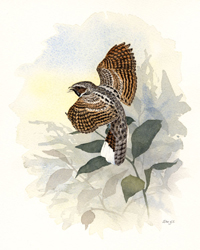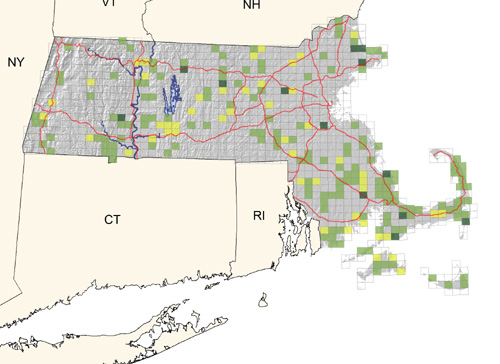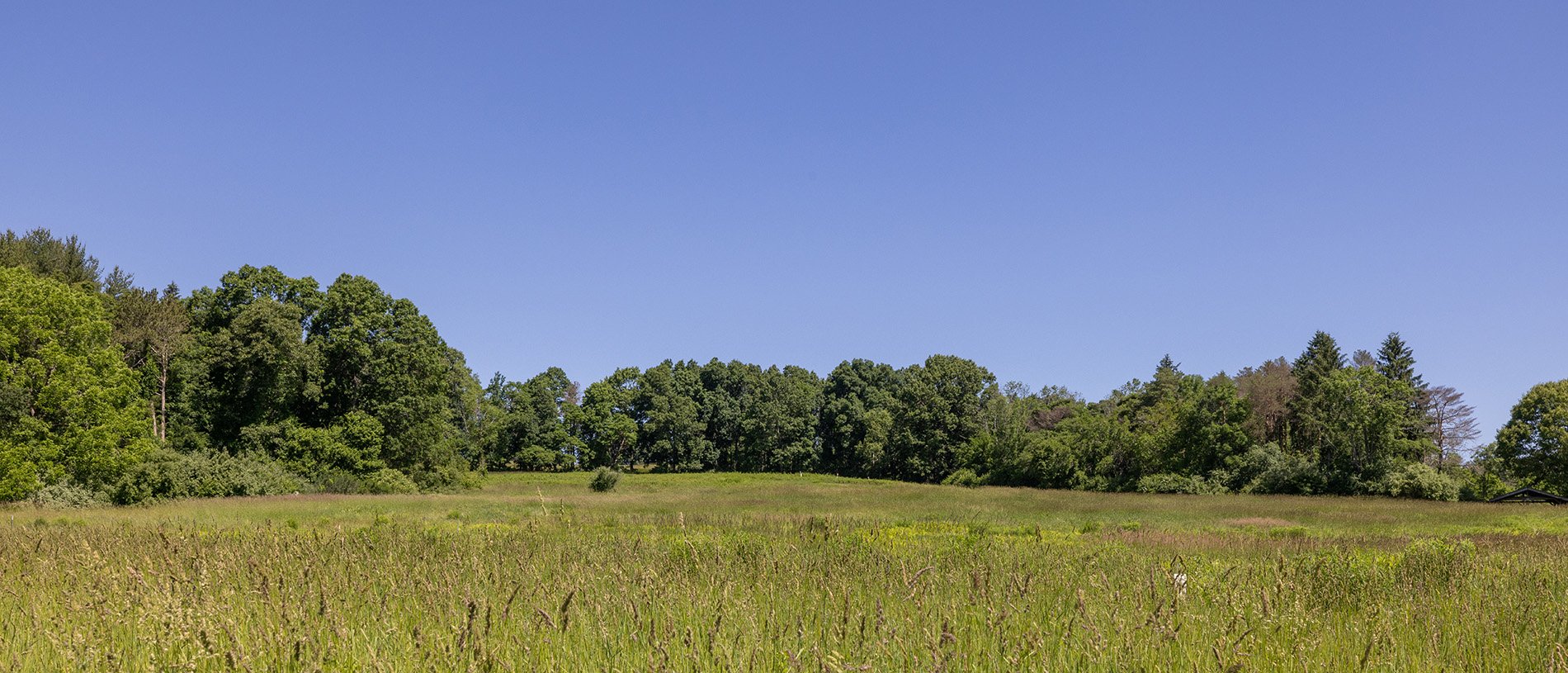Breeding Bird Atlases (BBA)
Find a Bird - BBA1
Breeding Bird Atlas 1 Species Accounts
Whip-poor-will
Caprimulgus vociferus
Egg Dates
May 18 to June 9
Number of Broods
one; may re-lay if first attempt fails.

The loud, persistent call of the Whip-poor-will is familiar to many in Massachusetts, yet few have ever seen this nocturnal recluse. The Atlas results indicate that the species is thinly but widely distributed throughout the state, but it is common only along the southeastern coastal plain of Plymouth County, Cape Cod, and the Islands. In central and western portions of the state, it is very local and basically confined to the lower elevations. The birds inhabit dry woodlands of pine and oak, with little undergrowth and some interspersed clearings, where they hunt for moths and other flying insects; they generally avoid mature forests and higher elevations.
The first whips usually are heard during the last week of April, with a more widespread arrival in the first week of May. The unmistakable call is a ringing, monotonous whip-poor-will or pur-pill-rib given at a rate of about one per second. A soft chuck note preceding each call is audible only at very close range. The birds are most vocal for a couple of hours after sunset and again for two to three hours before dawn. Few birds are as tireless in proclaiming their territories; naturalist William Burroughs once counted 1,088 consecutive calls from one particularly zealous individual.
Whip-poor-wills are nocturnal; consequently, only meager information is available on their behavior and breeding ecology. Territory size has been reported to range from approximately 25 to 77 acres. The male performs a hovering flight display, perhaps related to courtship, during which the tail is fanned, flashing the white outer tail feathers.
No nest is constructed; the two eggs are laid simply on leaf litter in an area of dry ground, usually on the open forest floor but occasionally under a small bush. A clutch of two eggs was discovered in Worcester County on May 29 (DKW). Incubation lasts 18 to 20 days and is performed primarily by the female, with the male relieving her at times during the night. Incubating birds rely on their exceptional cryptic coloration for protection and in some instances can be touched without flushing. On other occasions, however, the approach of an intruder elicits a fluttering, feigned, crippled-bird distraction display by the adult.
The cryptically colored young begin to wander short distances from the nest several days after hatching and fledge when they are about 20 days old. Two half-grown young were observed in Pelham on July 31 (Nice 1933). In the southern United States, two broods may be raised in a season, but one per year is probably more normal in Massachusetts. It is probable that the species will renest if the first attempt fails, and the July dates for young indicate that eggs can be expected at least through June. By late summer, Whip-poor-wills are heard only sporadically, and by late September they have departed for wintering grounds in the extreme southern United States and Central America.
Once one of the most familiar sounds of the summer night, the call of the Whip-poor-will is no longer heard in many areas of Massachusetts where it was once common. This decline has continued in the years following the Atlas. Sadly, the species’ apparent dependence upon special types of open, scrubby woodlands may soon relegate it to those few areas that remain unfragmented by humanity’s inexorable intrusions. Automobiles may take a toll in some areas, and it is believed that the collapse of populations of the large saturniid moths has contributed to the decline of the Whip-poor-will due to the loss of a major food source.
Map Legend and Data Summary
Atlas 1 data collected from 1975-1979


Note: generally uncommon and local, most common in the southeastern coastal plain; declining
Blair Nikula



